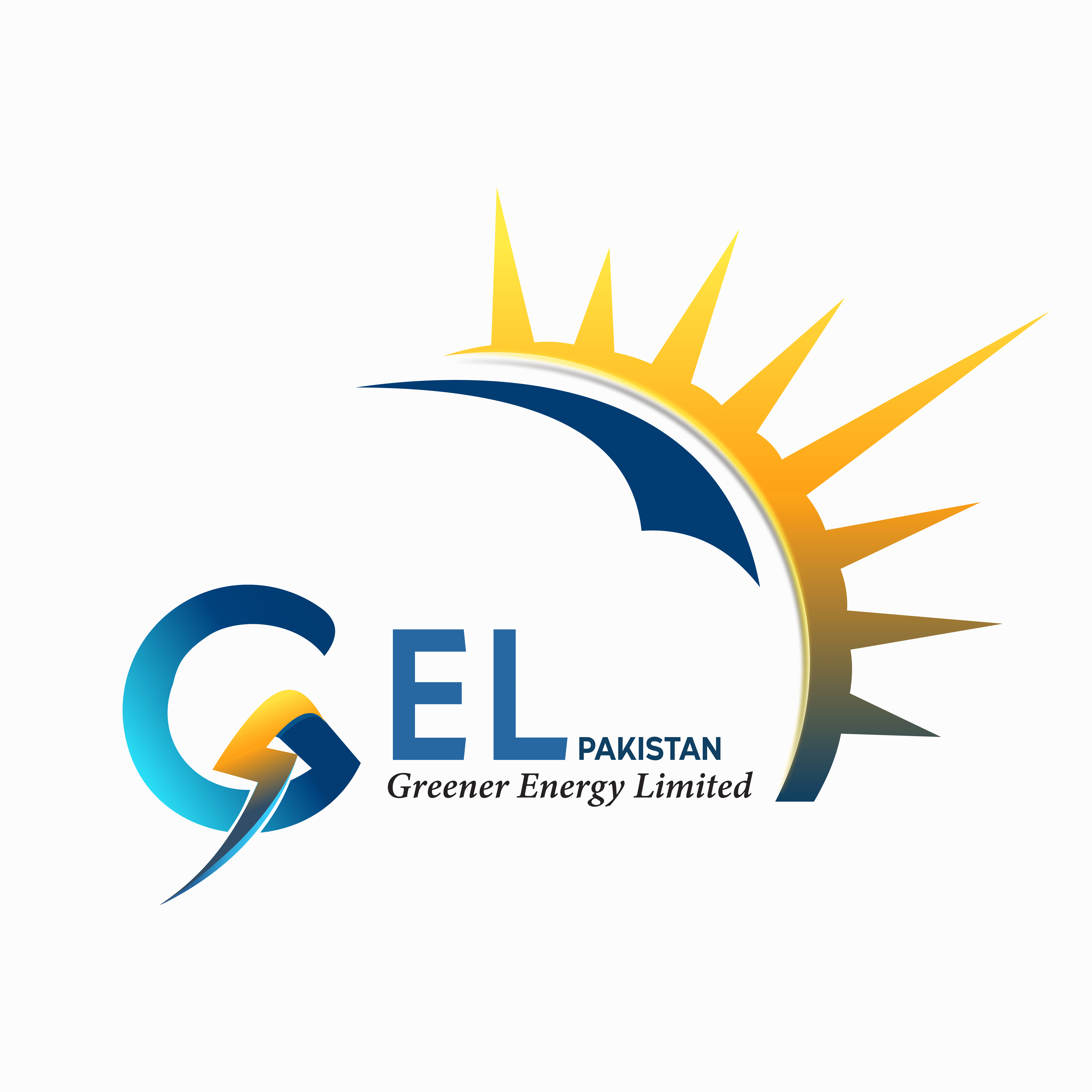Weather and Solar Panel System: A Guide on Sunpower Through Clouds, Rain & Wind!
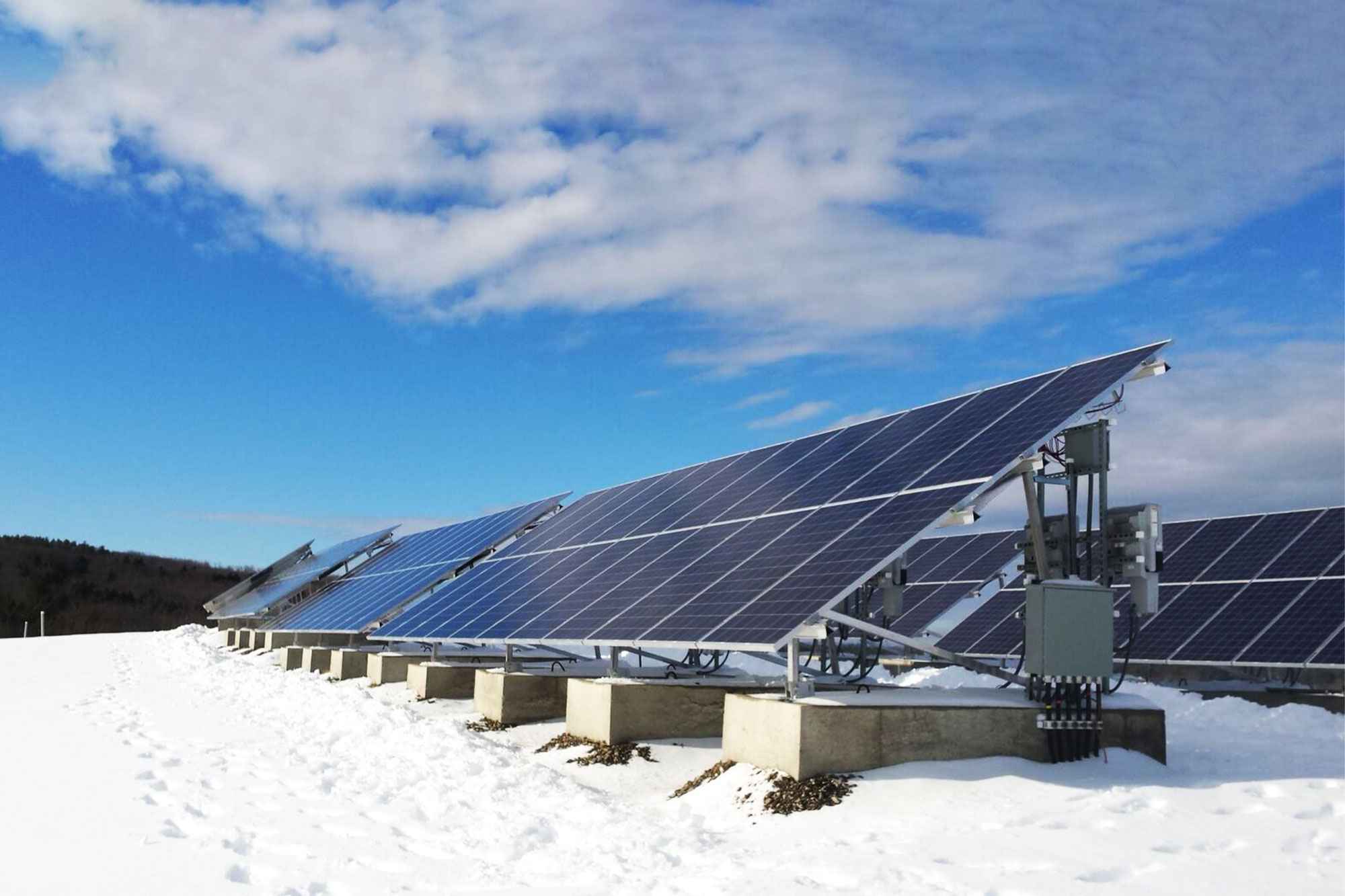
Weather and Solar Panel System: A Guide on Sunpower Through Clouds, Rain & Wind!
Solar panels are fantastic sources of sustainable energy. If you’re considering installing a solar array on your property, you might wonder, “How does weather affect solar panels?”
Solar panel systems perform at their best on cold, sunny days when they can get sufficient sunlight without being overheated or damp.
Snow and other meteorological factors might cut the amount of power an array can produce. Backup generators act as additional energy sources that supply electricity when bad weather impairs the functioning of solar panels.
What is the Best Temperature for Solar Panels to Work Optimally?
Do solar panel systems work in winter with the same effectiveness?
Yes. The answer may surprise you. Contrary to popular opinion, solar panels do not absorb the heat coming from the sun, but rather the sun’s energy.
So, how does the solar panel utilize the sun’s energy?
Particles of solar energy called photons make up sunlight. Photovoltaic cells found in solar panels capture photons and transform sunshine into power.
Electrons emit when photon particles interact with solar panel PV cells, creating an electric current that flows to an electrical distribution box and powers homes and other structures.
While the temperature does not affect the amount of energy that enters a solar panel, it does affect how much electricity that energy will generate.
Solar panels use less energy from sunshine as they become hotter. Since electrons are often at rest, they have minimal power. They become active in the sun and produce more energy as a result.
The energy differential between an electron’s relaxed state and its sunlight-activated, elevated phase determines how much electricity a solar panel can generate.
Electrons get energized and placed at heightened energy levels by heat. Since heated electrons have high rest energy, there is less of a difference between their resting and energized states, which results in less power generation.
When electrons are dormant, cold temperatures retain them in low energy states, enhancing their power production when sunlight activates them.
Because of this, solar panels work best when it’s cold outside.
What Happens When the Weather is Cloudy or Rainy?
Yes, solar panels can function on an overcast and wet days, although not always at their best. The extent of cloud coverage affects how effective they are.
Solar panels’ ability to generate electricity gets reduced by anything that prevents sunlight from reaching them, such as clouds, fog, and tree shade.
When the sky is full of clouds, solar panels receive sunlight even then. Although, most of the sun’s light gets reflected by these clouds.
On cloudy days, amount of cloud cover determines how much power a solar panel can produce.
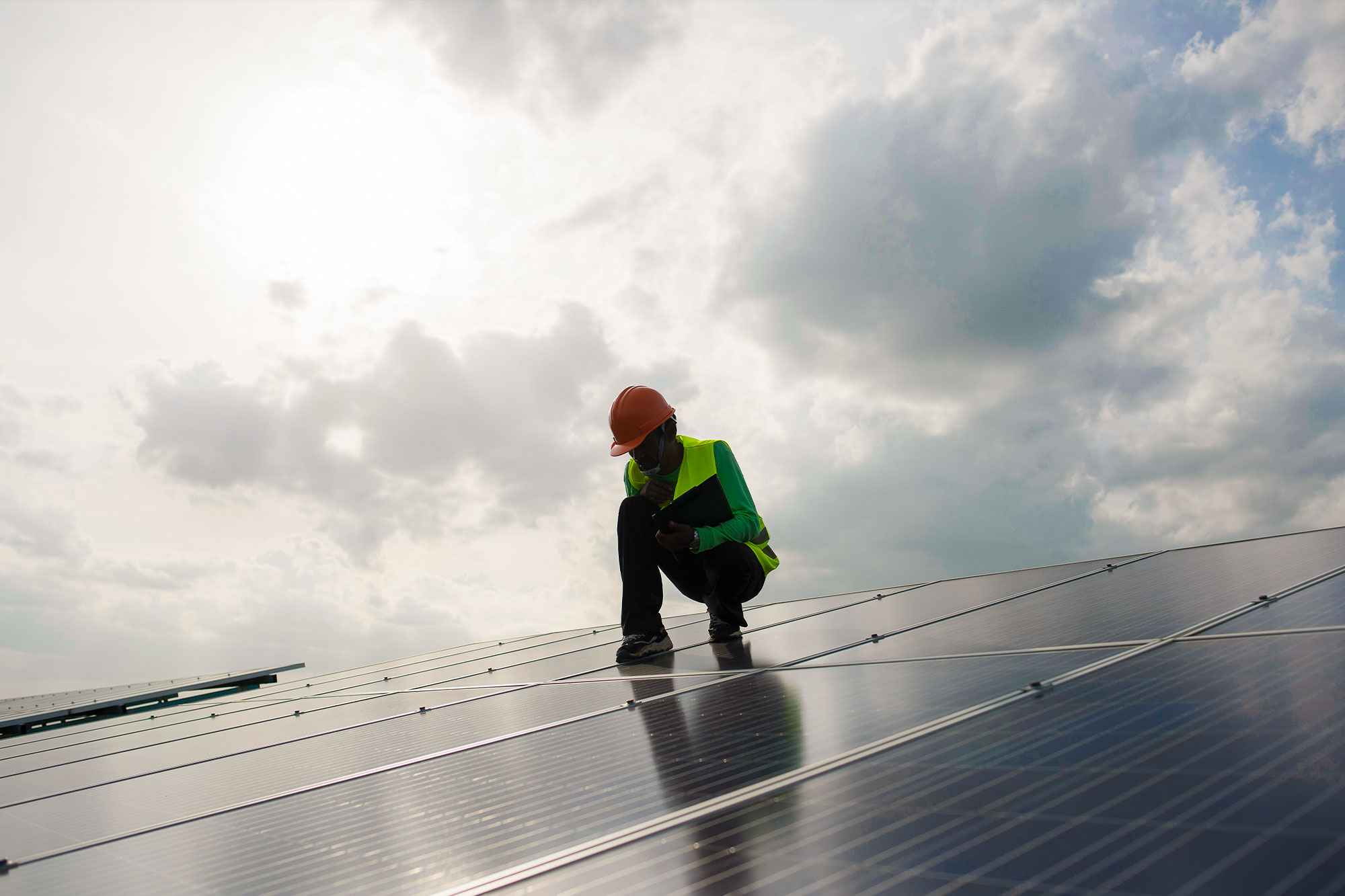
What Happens on a Cloudy Day?
A solar panel may normally produce 10 to 25% of its typical power capacity on a cloudy day.
This percentage can change depending on the solar panel’s efficiency and the amount of cloud cover.
When the days are cloudy, solar electricity generation may also temporarily increase due to the “edge-of-cloud” effect. It happens when low-level clouds pass in front of the sun, and their edges magnify sunlight, producing sunlight streams to strike solar panel edges.
What Happens When It's an Overcast?
On foggy days, solar panels can still generate electricity, but it is not always the case.
If it is a cloudy day, you can inspect the outside for shadows to see if your system is producing electricity.
If you can see objects casting shadows, your system is probably producing some electricity.
If there are no shadows, the cloud cover is likely too dense to allow sunlight to hit your solar panels.
Do a Solar Panel System Work in the Rain and Snowy Weather?
Solar panels might still function in the rain, but the amount of cloud cover affects how much power they can produce.
Although it is anticipation that dense clouds will reduce energy production, rain offers a simple and secure technique to wash solar panels.
Rain can wash away dirt and debris from solar panel surfaces, preventing them from building up and obstructing future sunlight.
While rain may reduce the amount of energy your solar power system can store, it will cleanse your panel surfaces and save you from this maintenance duty.
Snow, which builds up on panel surfaces and obstructs light, can impede solar energy generation more than rain and cloud cover. However, depending on their inclination and the temperature after a snowstorm, snow ultimately melts and slips off solar panels.
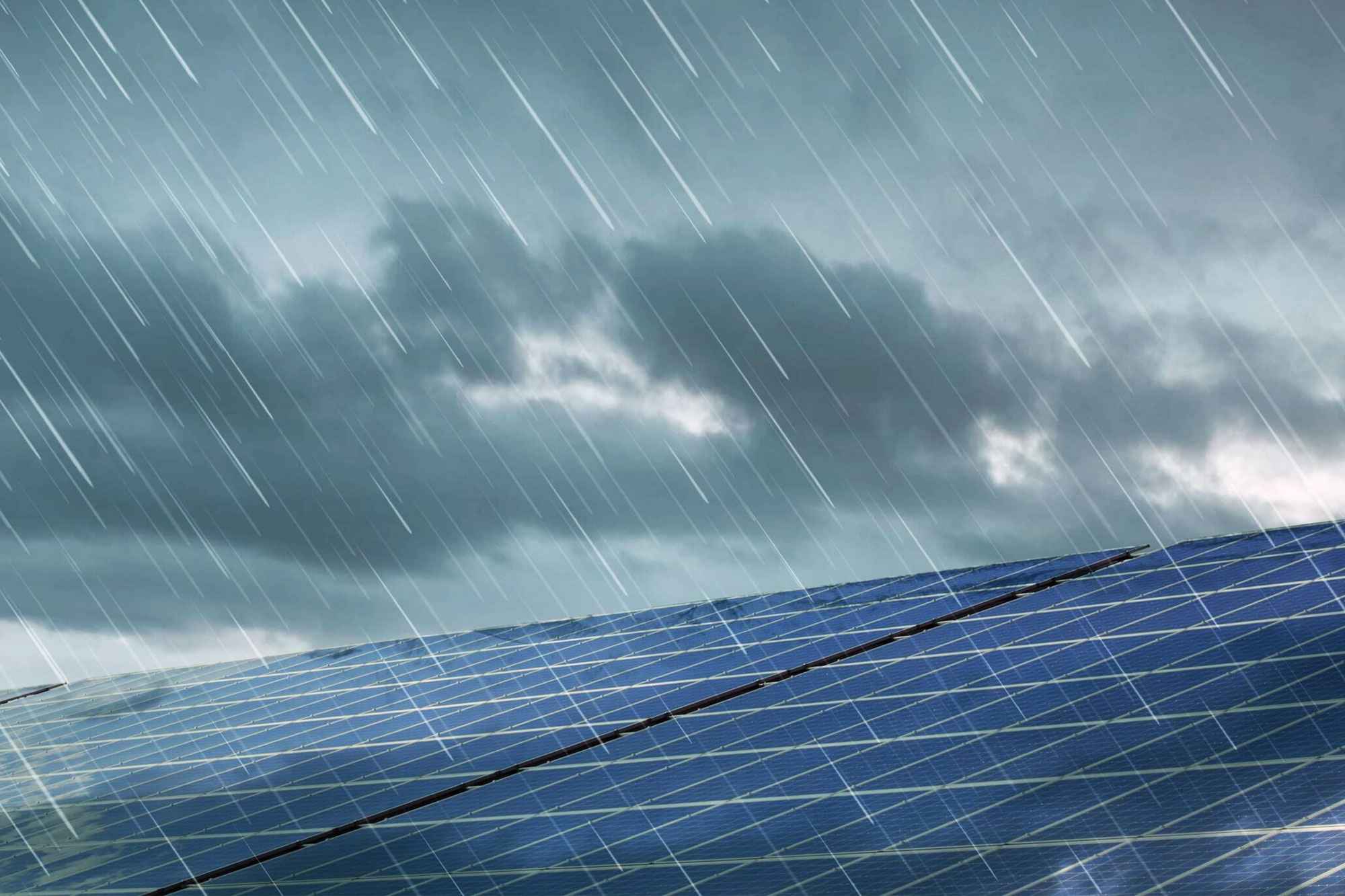
What is the Role of Wind on Solar Panel System Efficiency?
Solar panels’ ability to harness solar power is reduced by heat. However, wind can boost the energy output of solar panels by keeping them cold and lowering humidity. The wind soothes us on a hot day in the same manner that it cools solar panels.
Wind doesn’t impact a solar panel’s power output, but it will have a little but cumulative effect.
Additionally, the wind blows moisture off solar panels. Like sweat beads on our skin, humidity causes tiny water droplets to collect on solar panel surfaces.
These water droplets reduce the amount of sunlight reaching the solar panel cells, as they can refract or reflect the light away from them.
Some solar panels may suffer long-term damage due to persistent humidity in tropical settings, which reduces their lifespan. On humid days, wind aids in reducing the moisture content from solar panels and keeps panel surfaces cool on hot days.
So, What’s the Solar Solution to the Weather Problem?
Clouds, hot weather, rain, and snow can dramatically reduce a solar panel’s ability to produce electricity by reducing the incoming sunlight. But there is a workaround. Despite bad weather, homes and businesses can still use solar power.
When weather conditions reduce the effectiveness of solar panels, commercial generators and backup generators for residential use can supply energy.
Fuels such as diesel, gasoline, or propane can power backup generators. They work well together with solar panels since they offer extra power, ensuring that your lamps and appliances stay on even on overcast, rainy, or windy days.
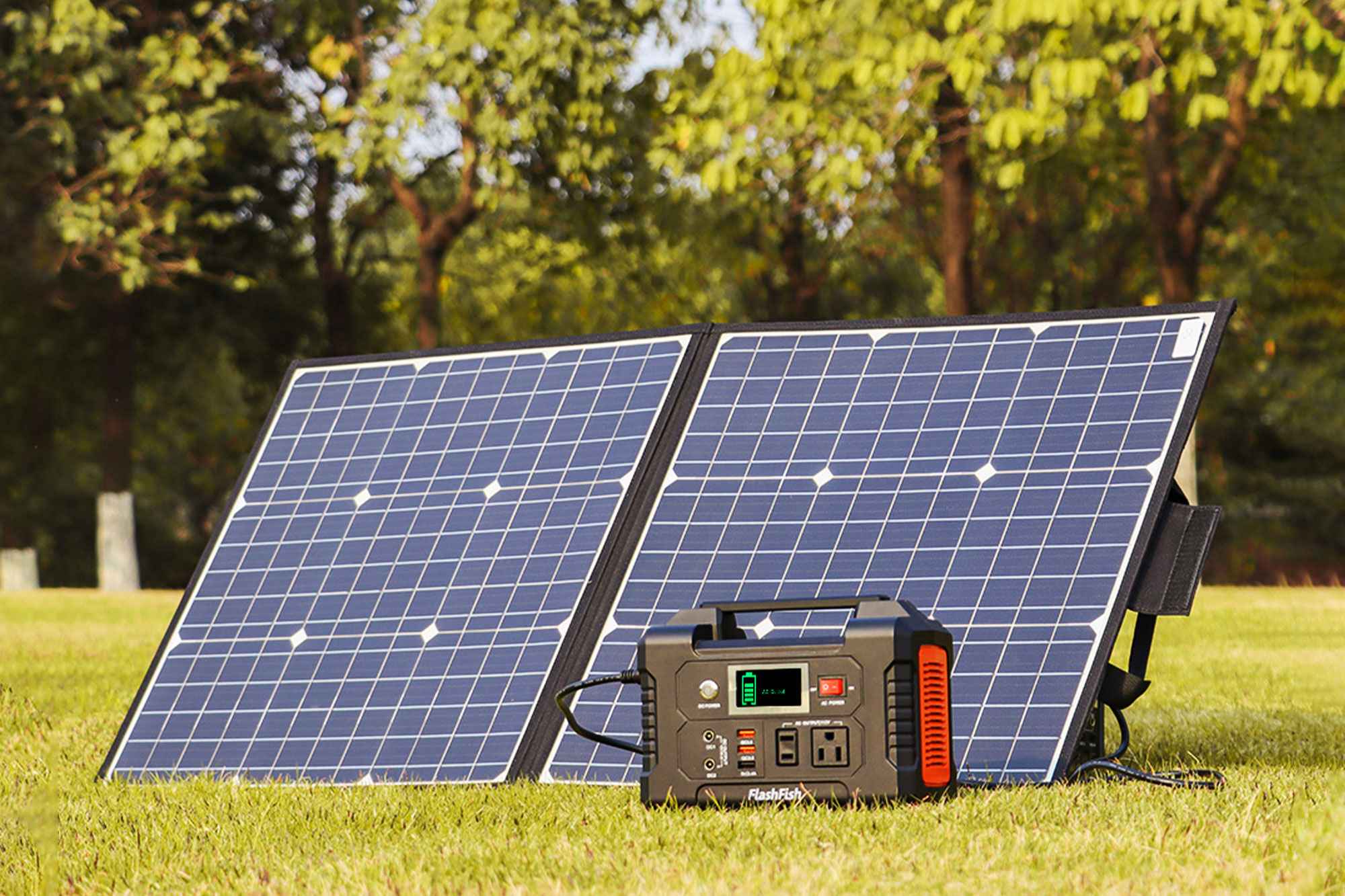
Get Your Solar Panel System Work Efficiently with GEL Pakistan!
Solar electricity is an economical, sustainable power source for residences and small enterprises. The ideal option for your solar power system is to incorporate a backup generator as an additional power source because bad weather can reduce a solar panel’s power output.
Contact GEL Pakistan the top solar energy company in Lahore to plan a solar panel system to keep your house or small business running smoothly.

Our goal is to change the modern world and create sustainable and nature-friendly energy solutions for future generations.
- 124 DD, Sector CCA Dha Phase 4, Lahore, Punjab
- info@gelpakistan.com
- +92 321 887 4333
Greener Energy Limited Pakistan Built By Keenly Digital
